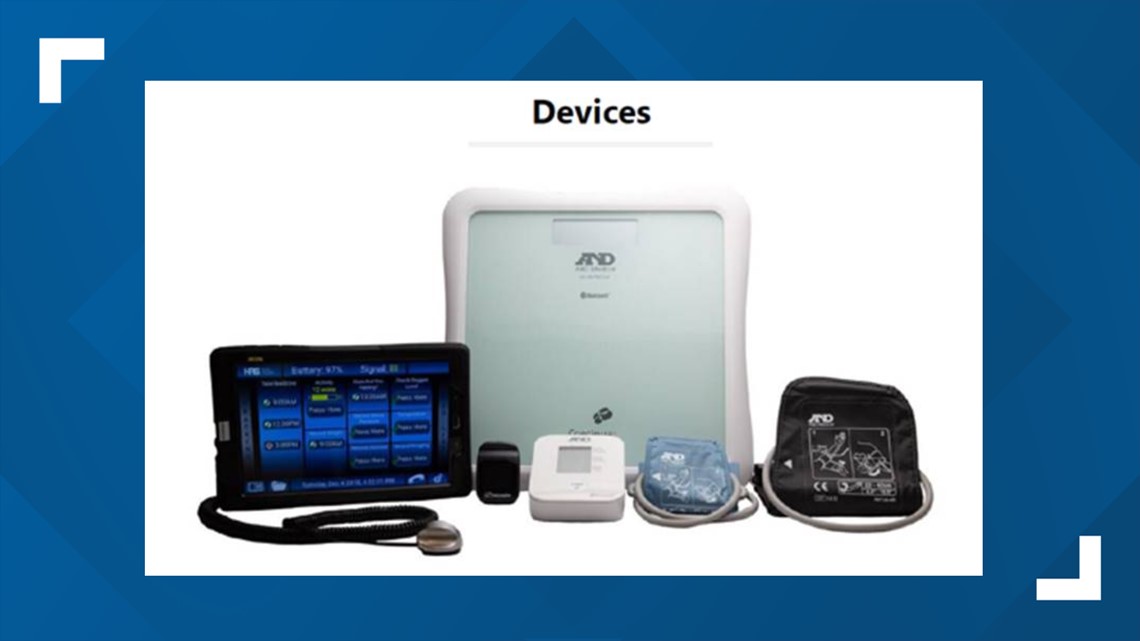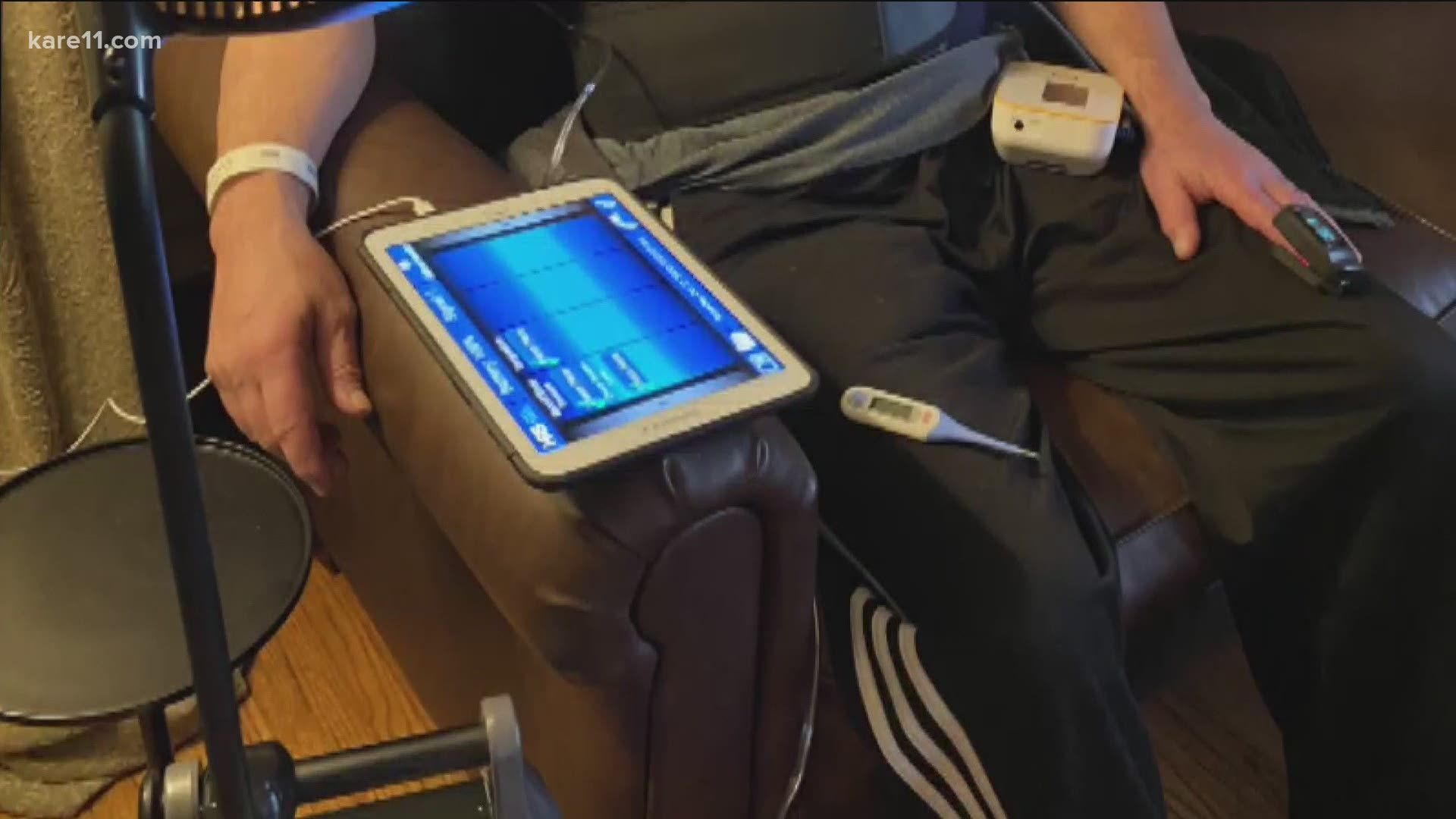MINNEAPOLIS — Throughout the pandemic, hospital capacity has been a big concern. But a University of Minnesota graduate helped create a program that allows some people to recover at home - and the service could even be free.
Greg Boyd is a pastor at a St. Paul Church who was diagnosed with COVID-19 two months ago.
"I didn't think anything of it really until it got worse the next day and finally we went in to get tested," Boyd said, whose symptoms included wheezing, a sore back and cough.
He qualified for Allina Health's new home hospital care program that was developed last year by students at the U of M, including Rachel Kuhnly.
"We kind of paused on the idea and when the COVID pandemic hit we found that was really the impetus to create the program for Allina Health," said Kuhnly, who has since graduated to become a strategy and business development consultant.
She now leads the project for Allina that she says has helped nearly 500 patients leave the hospital early or not be admitted at all since the pandemic started.
"What they sent me home with was all the equipment to measure and monitor the very stuff they would monitor in the emergency room anyways," said Boyd.
Each patient gets a bio-metric monitoring kit with devices to track their vitals, like oxygen levels and temperature. Boyd tested his twice a day and the information is electronically sent to nurses who he had virtual appointments with every day, combined with daily visits at his house from another nurse and paramedic.


"They made it so simple, it really is," said Boyd. "If you can push a button, you can run this thing."
Boyd has insurance and says the program was free for him. Kuhnly says due to the CARES Act, patients who don't have insurance, but are COVID-positive, are not charged either.
"If it's cost effective, it's brilliant," said Boyd. "You keep hospitals from being overloaded and people get to stay with their family which is a much better healing environment to start with."
Kuhnly says data already shows the program is 30-percent cheaper than a hospital stay and calls home hospital care the wave of the future.
Besides Covid patients, the program is also available to help people with COPD, heart problems, hip replacements and renal failure.

